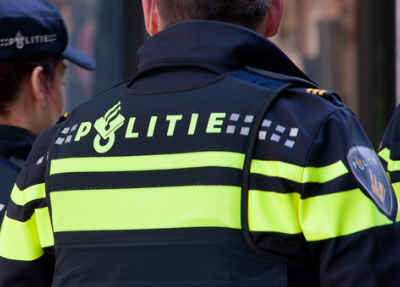Police chiefs have admitted to changing duty rotas to accommodate officers who have “moral objections” to protecting Jewish events and buildings such as the national holocaust museum.
Mireille Beentjes, a spokeswoman for the national police force leadership, told the Telegraaf that the force took individual objections into account when drawing up duty rotas.
“There is no hard and fast policy,” she said. “The line is that police staff are allowed to have moral objections.
“We take moral objections into account when we make the rotas. But if there is an urgent job to do they go on duty whether they want to or not.”
Michel Theeboom, one of the leaders of the Jewish Police Network, said he was concerned that officers were being allowed to opt out of duties that clashed with their personal views.
“During the preparations for security at the Holocaust Museum there were colleagues who didn’t want to be rostered in,” he said. “You’re allowed to get food and drink in the building while on duty, for example, but they didn’t want to.”
“Security comes first”
National police commissioner Janny Knol said officers refusing to guard Jewish buildings would not be tolerated, but discussions were ongoing about how to deal with conscientious objections.
“Police staff are people and they have the right to their own views and the emotions that go with them,” she said. “But where people’s security is concerned that is our top priority. We are here for everyone.”
Justice minister David van Weel said it was “unacceptable” for officers to refuse to go on duty for reasons of conscience.
“I can’t stop what people think, feel or believe,” he said. “But you should leave it at home. As a police officer, as soon as you put on your uniform you have a job to do, and that job is totally neutral.”
Farmers’ protests
And Nine Kooiman, chair of the national police union, said officers’ first duty was to protect society.
“We see conscientious objections at farmers’ protests and demonstrations by Extinction Rebellion as well,” she said. “The question is whether we should act on them. But if you give way to everyone there’s no end to it.
“When you’re serving society you have to leave your personal considerations and emotions out of it.”

